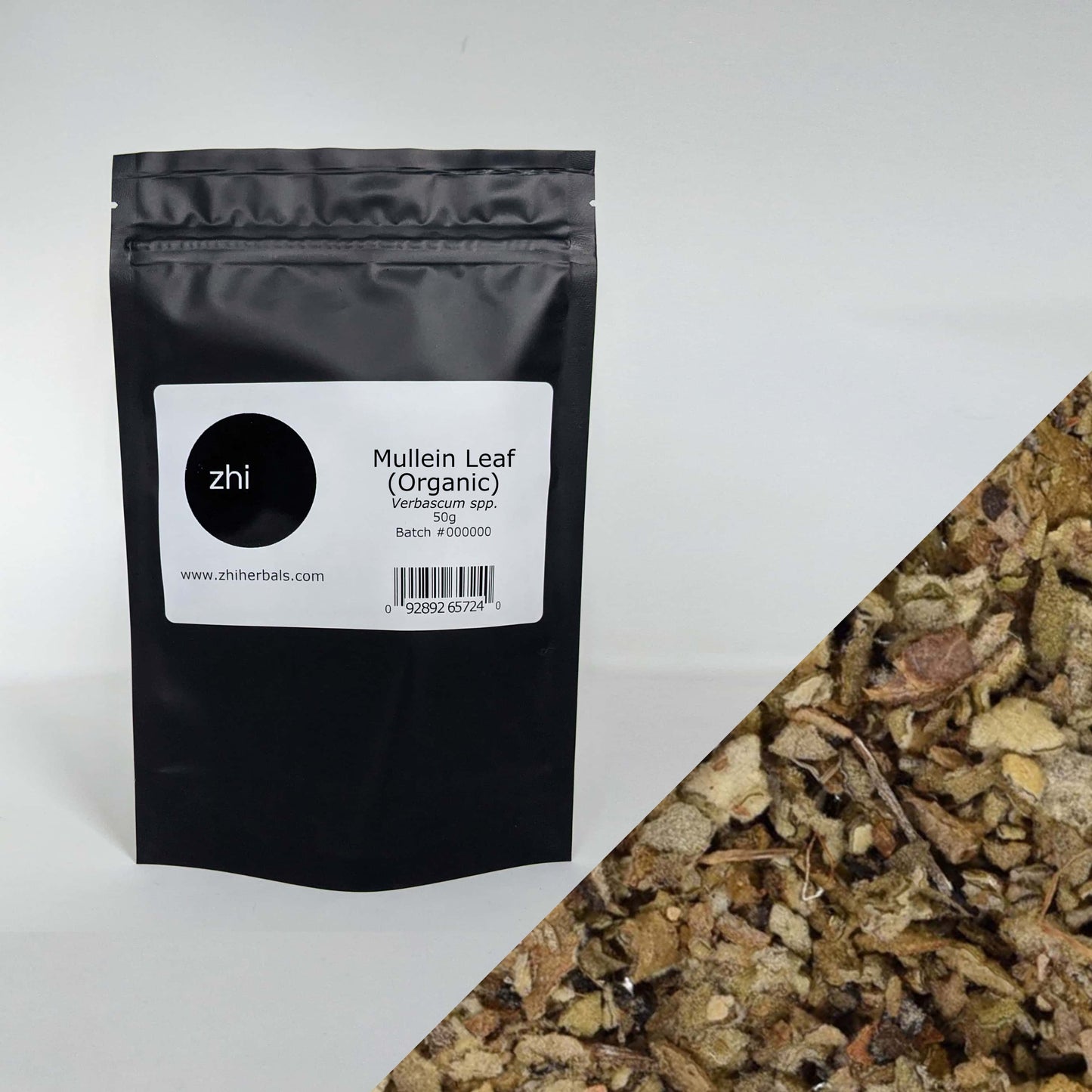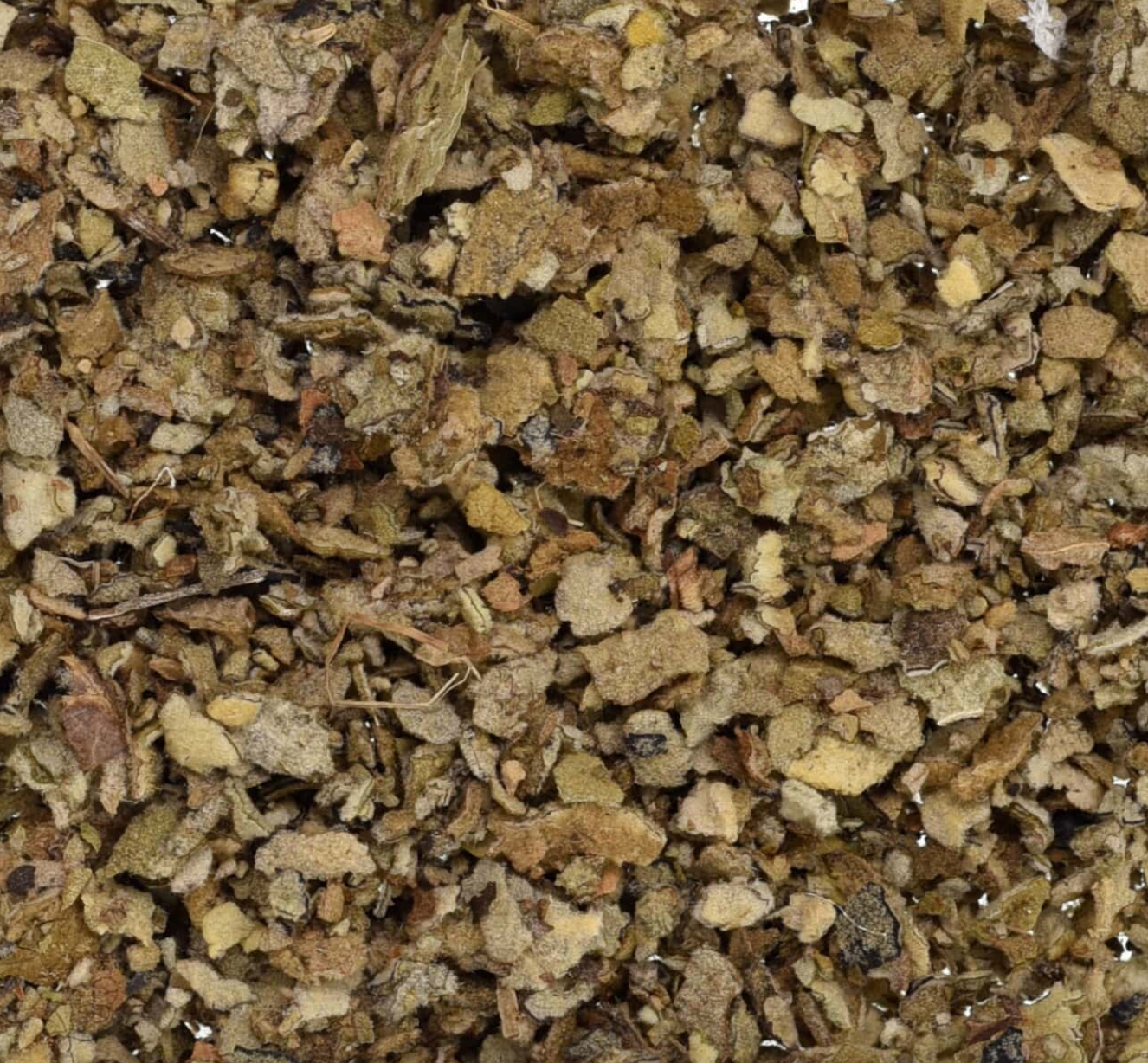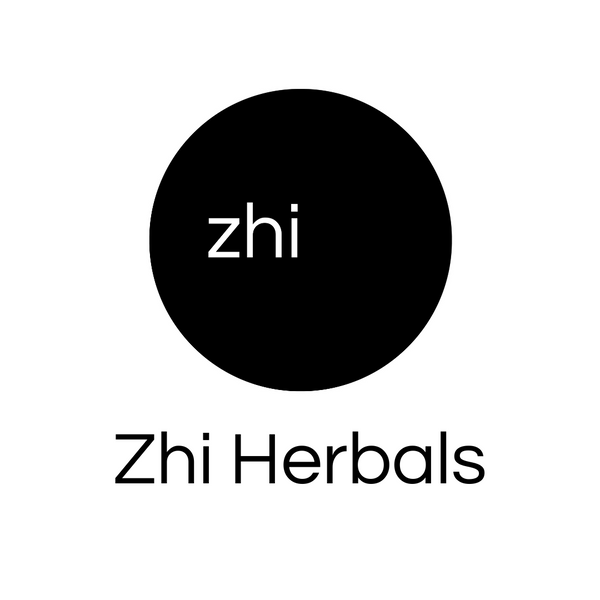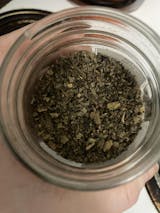Zhi Herbals
Mullein Leaf (Organic)
Mullein Leaf (Organic)
Couldn't load pickup availability
Common Name
Mullein, Aaron’s Rod
Latin Name
Verbascum spp.
Origin
Croatia
What Is Mullein Leaf?
Mullein leaves are the most common medicinal plant part harvested from the mullein plant. Mullein is native to northern Africa, the Canary and Madeira Islands, Asia, and Europe.
Mullein leaf is commonly used as an herbal remedy for lung complaints, congestion, and as a base ingredient for herbal smoking blends. When prepared as a tea, mullein leaf can effectively help remove mucus from the lungs and soothe coughing and throat irritation.
Mullein has been used since at least 1st century Rome, where it was mentioned in the writings of Dioscorides, a Greek physician, pharmacologist, and botanist. Mullein works well both on its own and when combined with other herbs.
How to Use Mullein Leaf (Common Uses)
Mullein leaf can be consumed as a tea, powder, capsules, or extract. For most people, mullein leaf tea is safe to drink every day.
Mullein leaf can be smoked, and it often acts as a base ingredient in herbal smoking blends, where it may be combined with other traditional smoking herbs such as uva ursi leaf and lavender.
We recommend using caution if you are handling large amounts of dried mullein leaves repeatedly over an extended period of time. Repeated skin exposure to dried mullein leaves can cause dermatitis for some people. Dermatitis reactions are most often experienced by people who handle many pounds of dried mullein leaf on a long-term daily basis, usually in a professional capacity. For people who handle an average amount of mullein leaves, especially if done so infrequently, dermatitis is not a concern. Mullein leaf that has been prepared as an herbal infused oil or tincture and applied topically does not cause dermatitis, even in large quantities.
Visit our herbal blog for more ideas about what mullein leaf is good for.
Medicinal Uses and Benefits of Mullein Leaf
In herbal medicine, mullein leaf is often used for cleaning and healing the lungs, expelling mucus, and relaxing the respiratory system. It offers benefits for both dry and hoarse coughs, as well as for wet and productive coughs. Mullein leaf works especially well for lung conditions when there is thick mucus present.
Mullein has antibacterial and antiviral benefits, making it a popular herb for people with infections. For a lung supportive herbal tea, mullein leaf is often combined with thyme leaf and calendula flowers. To help combat ear infections, infused oils and extracts made from mullein leaf are often mixed with garlic extracts and applied topically as ear drops, or rubbed near the base of the ear.
Smokers and people with COPD may use mullein leaf tea to help relieve inflammation. The benefits of drinking mullein leaf tea daily can be felt with it is used over both the short and long-term. It is high in mucilage, which can help to soothe lung irritation. Mullein is effective for drawing stagnation, mucus, infections, and congestion out of the body, and is often the herb of choice for those who are looking for a lung detox.
Some herbalists recommend combining mullein with milk when taking it internally, although the benefits of this method will depend on the ability of the individual to digest dairy.
Mullein is a popular ingredient in herbal smoking blends and is often used to help ease the harshness of other herbs. Mullein, when smoked, does not produce any psychoactive effects. While mullein is supportive for the lungs, any type of smoking can be detrimental to health. We think that the best way to use mullein leaf for the lungs is to drink it as a tea, as this avoids the negative effects of smoking.
Active Constituents in Mullein Leaf
Mucilage, flavonoids, saponins, tannins.
Notable Facts About Mullein Leaf
Mullein has been used in folk practices to ward off evil spirits, instill courage and health, provide protection, and attract love and fertility.
Adverse effects from consuming too much mullein leaf tea have not been recorded in herbal literature. Mullein leaf does not adversely affect the liver, kidneys, or gut health. We recommend talking to your healthcare provider if you are currently taking any drugs or medications that mullein leaf may interact with.
Share


I love zhi already for their quality of products, selection and conscientious practices. I grabbed a bag of mullein leaf because I had some phlegm I was having trouble with, made a cup of tea and I was immediately able to expel it. Would definitely reccomend if you have a cold, smoke, have asthma or any other lung exposure to help detox. Thanks zhi!! 💖
Only took 1 week for delivery. Product seems fresh. Did exactly what I needed, it took my husband’s cough away he had for 2 1/2 weeks with only 3 cups of tea. And I love that it’s a Canadian product 👍🏻.
Always an easy transaction with Zhi Herbals. Product is excellent quality and you can always get a quick response from the seller. I have purchased multiple times and would highly recommend them.
As always I love you guys. Awesome work
I love the mullein leaf. I’m hoping it will be good for my lungs. Delivery was prompt and the mullein seems very fresh. I’ll be ordering other herbs from you, for sure!



